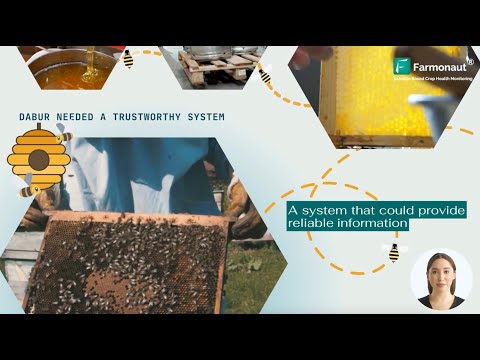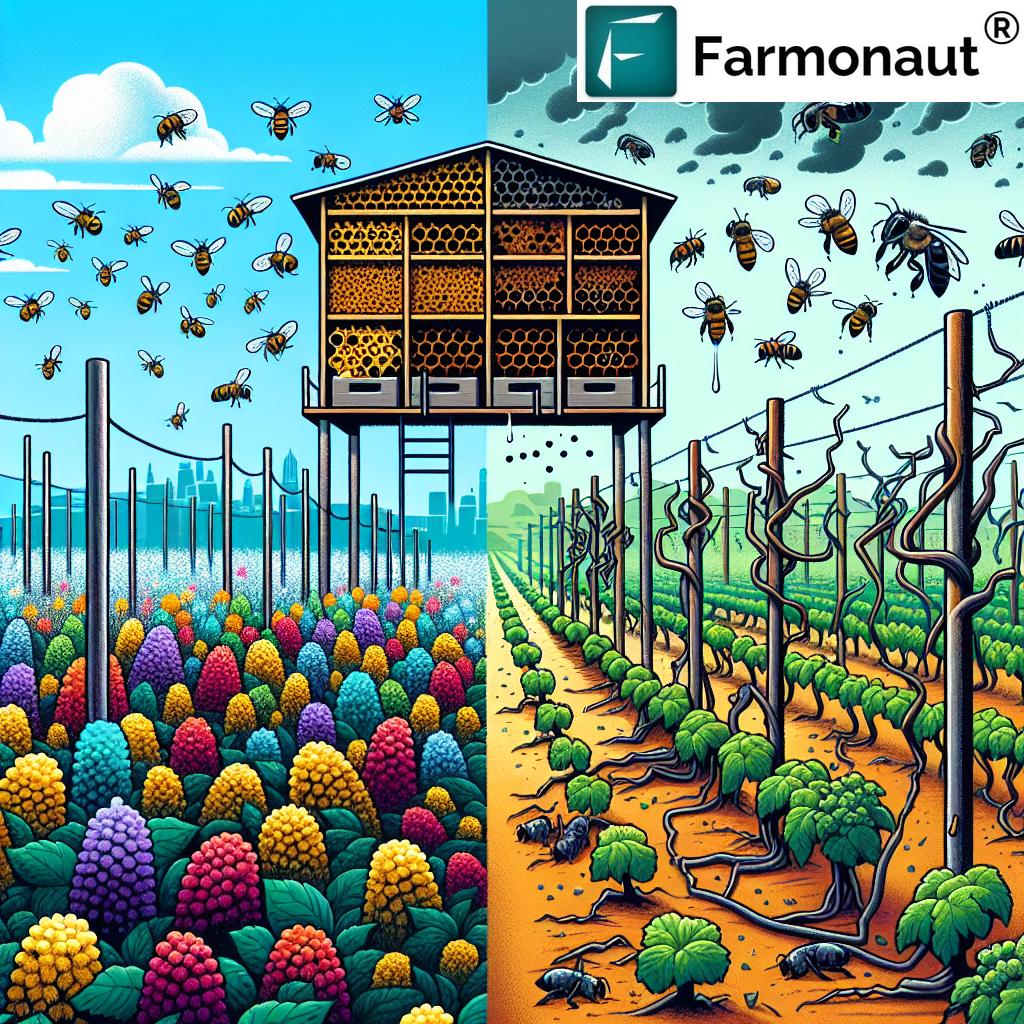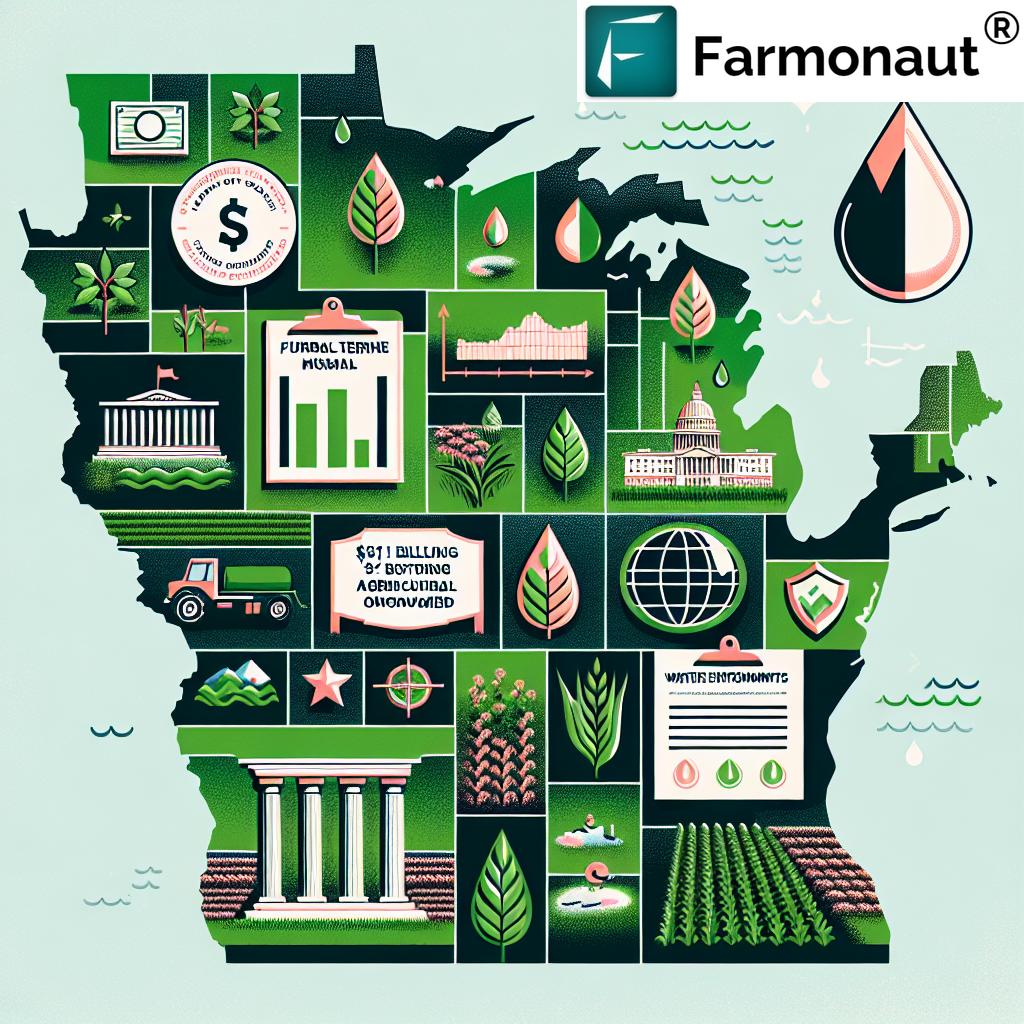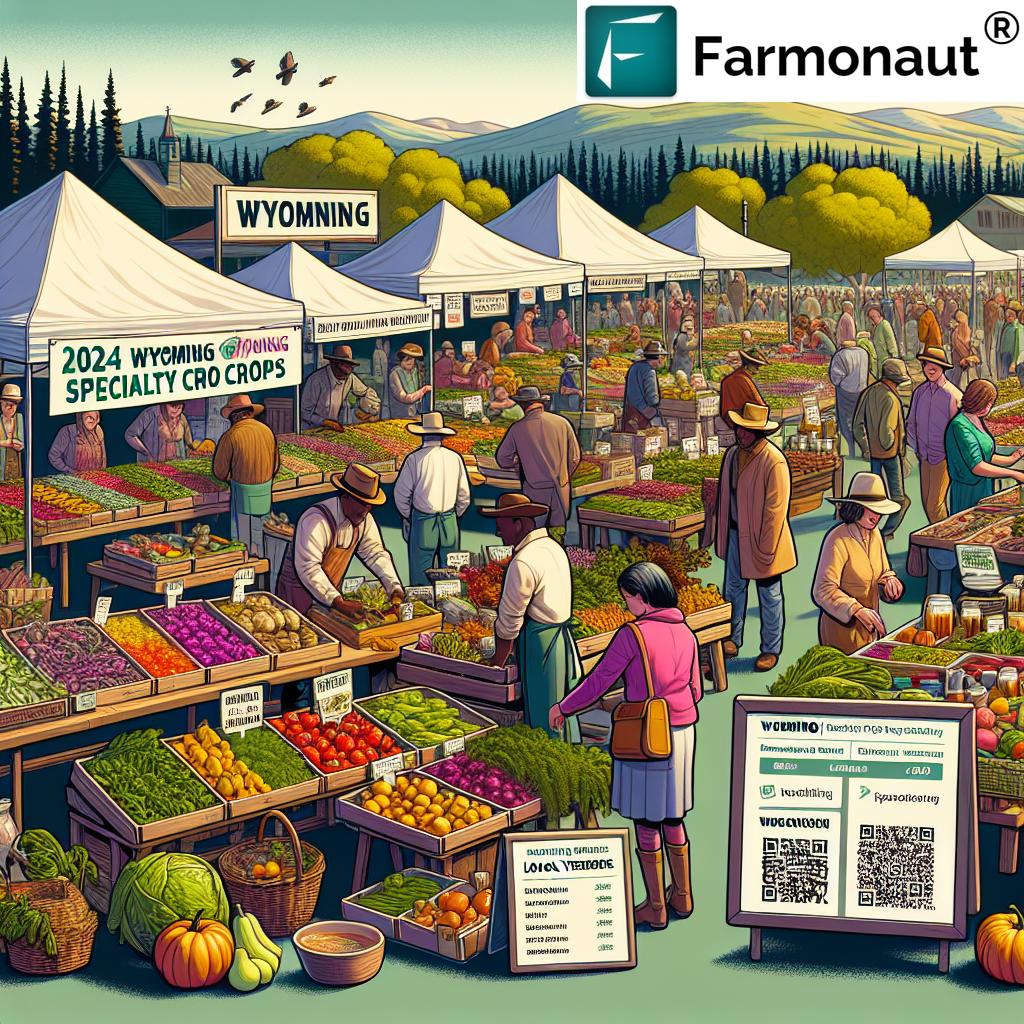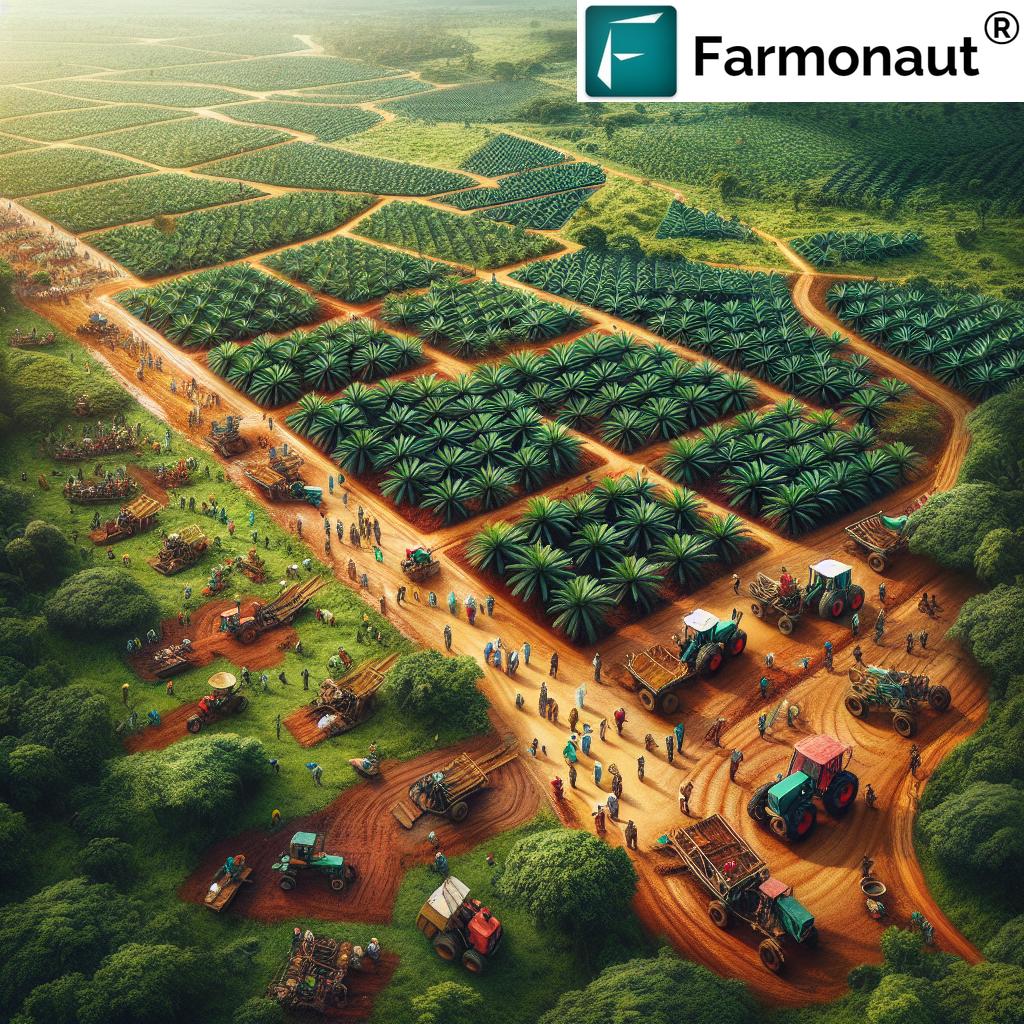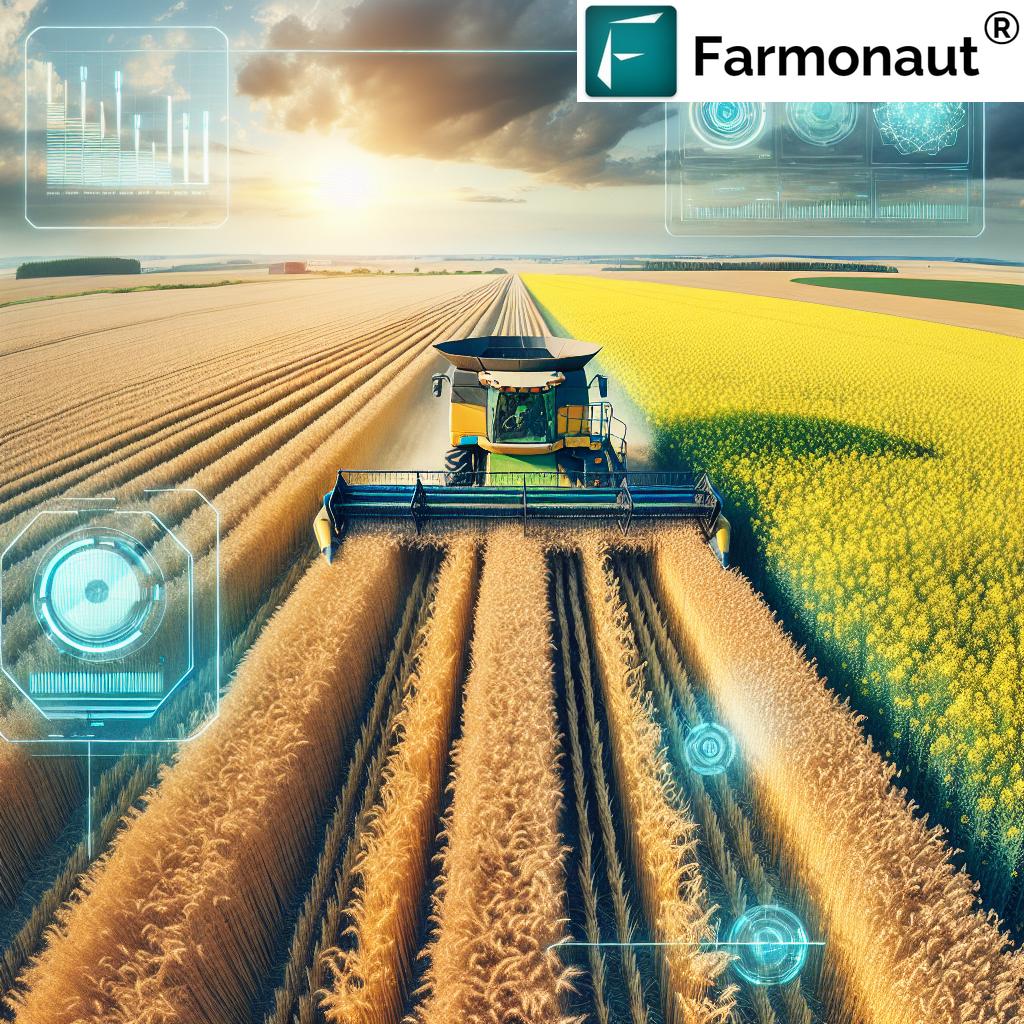Global Trade Barriers: How US-China Tensions and EU Regulations Impact Agricultural Markets
“The National Trade Estimate Report highlights China’s industrial policies as a key factor impacting global agricultural markets.”
In today’s interconnected world, global trade barriers and agricultural market access have become critical issues that shape the landscape of international commerce. As representatives of Farmonaut, a pioneering agricultural technology company, we understand the importance of staying informed about these trade dynamics. In this comprehensive analysis, we’ll delve into the latest National Trade Estimate Report on Foreign Trade Barriers, exploring how US-China tensions, EU regulations, and other factors are impacting agricultural markets worldwide.
Understanding the Global Trade Landscape
The U.S. Trade Representative (USTR) recently released its annual National Trade Estimate Report on Foreign Trade Barriers, shedding light on a range of concerns across the globe. This report, published on March 31, comes at a crucial time when potential tariff announcements loom on the horizon. It identifies various issues, from tariffs and regulations to policies that the U.S. considers impediments to fair market competition.
As we navigate this complex terrain, it’s essential to recognize the role that advanced agricultural technologies play in mitigating some of these challenges. For instance, Farmonaut’s satellite-based crop health monitoring system can help farmers optimize their production in the face of trade restrictions, ensuring they make the most of their resources.
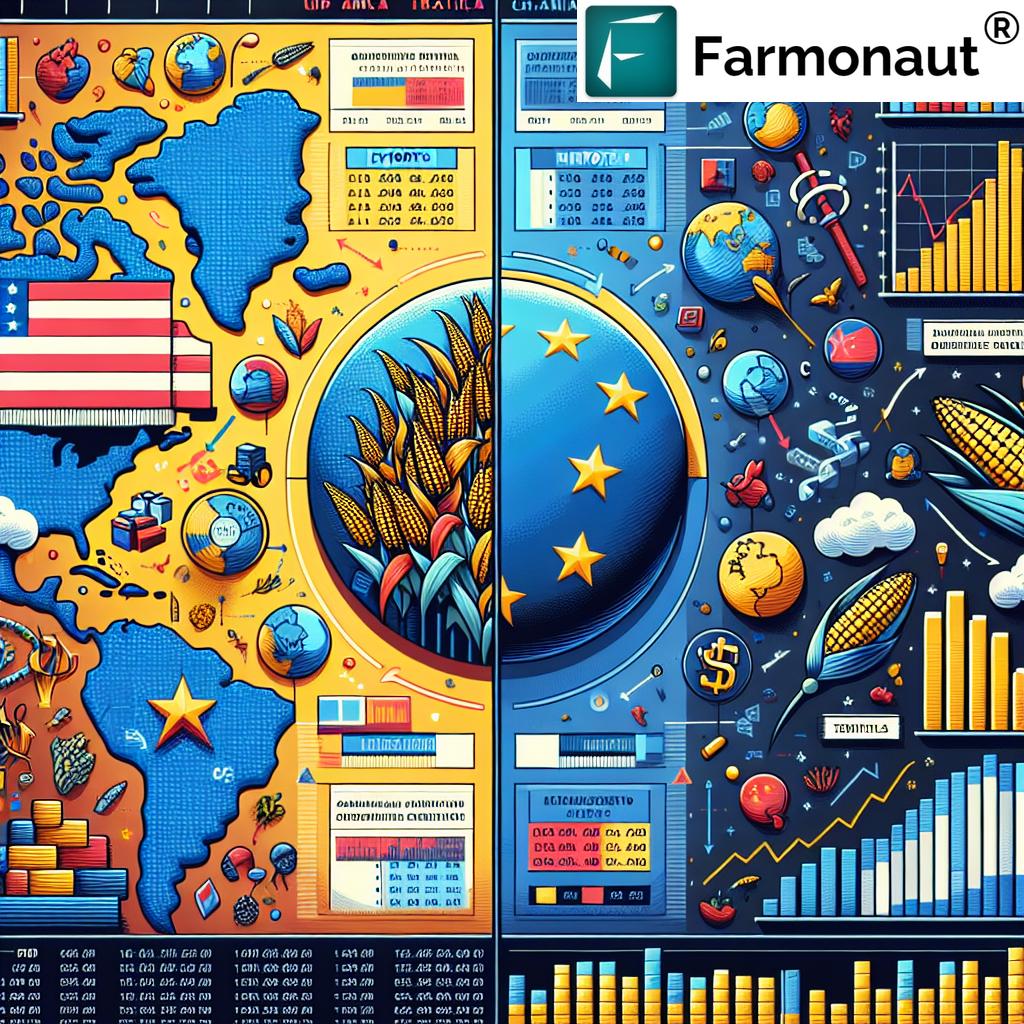
China: A Focal Point of Trade Tensions
The report dedicates significant attention to China, citing concerns over industrial policies that allegedly aim for dominance in sectors like robotics, aerospace, new energy vehicles, and biopharmaceuticals. These policies are accused of discriminating against foreign companies, allowing Chinese firms to gain market share unfairly.
Key issues highlighted in the report include:
- Unfulfilled commitments to open China’s agricultural market
- Inadequate protection of U.S. intellectual property
- Restrictions on cross-border data flows
- Barriers to cloud computing, film production, internet services, courier services, and legal services
- Increasing use of export controls affecting supply chains involving the U.S. and its allies
These trade barriers pose significant challenges for agricultural exporters, particularly in sectors like corn production and genetically modified crops. However, innovative solutions like Farmonaut’s crop plantation and forest advisory services can help farmers adapt to these changing market conditions by providing data-driven insights for optimal crop management.
EU Regulations: A Double-Edged Sword
The European Union’s food-related regulations have come under scrutiny in the USTR report. While these regulations aim to ensure food safety and environmental protection, they often create significant trade barriers for agricultural exporters.
“EU food regulations and India’s tariff rates are among the top trade barriers affecting international agricultural exports.”
Some of the key issues highlighted include:
- Restrictions on chemicals and pesticides, which the USTR argues lack scientific basis
- Bans on meat produced using genetically modified crops or growth-promoting compounds
- Regulations requiring traceability of production sites for commodities like cocoa, beef, and palm oil
- The planned carbon border adjustment mechanism, set to be introduced in 2026
These regulations pose challenges for agricultural exporters, but they also create opportunities for innovation. For instance, Farmonaut’s carbon footprinting solution can help agribusinesses monitor and reduce their environmental impact, potentially easing compliance with EU regulations.
India: High Tariffs and Market Access Challenges
The USTR report identifies India as having some of the highest tariff rates among major economies. This presents significant obstacles for agricultural exporters looking to enter the Indian market.
Key issues highlighted for India include:
- High tariffs on goods like apples, corn, and motorcycles
- Various barriers for U.S. companies operating within the country, including licensing requirements, approvals, and quotas
- Conditions for dairy product imports
- Price caps on medical devices
- Restrictions on ethanol imports
- Extensive subsidies to the agricultural sector
Despite these challenges, India remains a crucial market for agricultural products. Farmonaut’s crop loan and insurance services can help Indian farmers navigate these complex market conditions by providing satellite-based verification for crop loans and insurance, reducing fraud and improving access to financing.
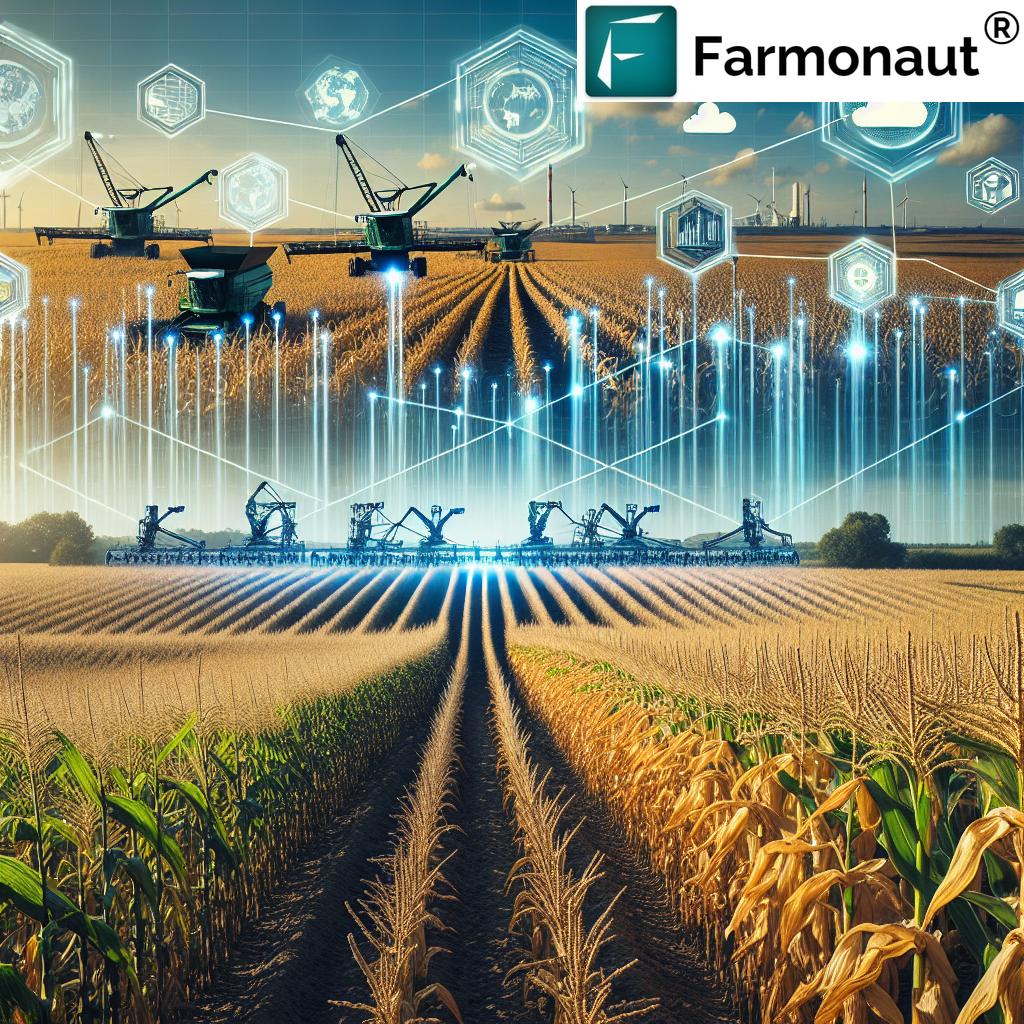
Canada: Supply Management and Digital Services Tax
The USTR report takes issue with Canada’s supply management system for dairy, chicken, turkey, and eggs. This system, which sets production quotas and prices while limiting imports, is accused of considerably restricting U.S. exports to Canada.
Additionally, the report challenges Canada’s digital services tax, a 3% levy on revenue from online shopping, advertising, and social media platforms. The U.S. argues that this tax disproportionately affects U.S. companies leading in these sectors.
These trade barriers underscore the importance of diversification and efficiency in agricultural production. Farmonaut’s large-scale farm management solutions can help farmers optimize their operations, potentially offsetting some of the impacts of these trade restrictions.
Japan: Persistent Market Access Issues
The report suggests that Japan maintains trade barriers affecting exports of seafood, leather, shoes, rice, potatoes, and pork. Concerns are also raised about limited access to the Japanese auto market, with the USTR claiming that vehicle certification and testing procedures make it difficult for U.S. cars to compete.
These barriers highlight the need for innovative solutions in agricultural production and supply chain management. Farmonaut’s blockchain-based traceability solution can help ensure transparency and authenticity in agricultural supply chains, potentially easing some of the concerns around product origin and quality that often underlie trade restrictions.
Mexico: Regulatory Uncertainty and Agricultural Restrictions
The report notes that regulations in Mexico frequently change without notice, creating uncertainty for U.S. exporters. Specific issues cited include:
- Licensing of drugs and medical devices
- Restrictions on pesticides and genetically modified products
This regulatory uncertainty underscores the importance of real-time data and insights in agricultural production. Farmonaut’s satellite-based crop health monitoring system can provide farmers with up-to-date information on their crops, helping them adapt quickly to changing market conditions and regulations.
Vietnam: Import Prohibitions and Data Barriers
Regarding Vietnam, the USTR criticizes:
- Import prohibitions on specific products like toys and used auto parts
- Regulations on pharmaceuticals, medical devices, genetically modified corn and soybeans
- Barriers to data and investment
These barriers highlight the need for advanced agricultural technologies that can help farmers maximize productivity within the constraints of local regulations. Farmonaut’s AI-driven advisory system, Jeevn AI, can provide personalized recommendations to farmers, helping them optimize their crop production while complying with local regulations.
The Role of Technology in Navigating Trade Barriers
As we’ve seen, global trade barriers present significant challenges for agricultural markets. However, they also create opportunities for innovation and adaptation. Advanced agricultural technologies, like those offered by Farmonaut, can play a crucial role in helping farmers and agribusinesses navigate these complex trade landscapes.
For instance:
- Satellite-based crop health monitoring can help farmers optimize production, potentially offsetting the impacts of trade restrictions
- AI-driven advisory systems can provide personalized recommendations, helping farmers adapt to changing regulations and market conditions
- Blockchain-based traceability solutions can enhance transparency in supply chains, potentially easing concerns around product origin and quality
- Carbon footprinting tools can help agribusinesses monitor and reduce their environmental impact, facilitating compliance with increasingly stringent regulations
By leveraging these technologies, agricultural producers can enhance their resilience in the face of trade barriers and market uncertainties.
Comparative Analysis: Global Trade Barriers Impact on Agricultural Markets
| Country/Region | Trade Barrier Type | Affected Agricultural Sector | Estimated Impact on Exports (%) |
|---|---|---|---|
| China | Industrial policies | Corn production, GMO crops | -15% |
| European Union | Food regulations | Pesticide use, GMO crops | -10% |
| India | High tariff rates | Apples, corn, dairy | -20% |
| Canada | Supply management system | Dairy, poultry | -12% |
| Japan | Market access restrictions | Rice, potatoes, pork | -8% |
| Mexico | Regulatory uncertainty | Pesticides, GMO products | -7% |
| Vietnam | Import prohibitions | GMO corn and soybeans | -5% |
This table provides a clear overview of the main trade barriers affecting agricultural markets across different regions. It highlights the varying nature of these barriers and their estimated impact on exports, underscoring the complexity of the global trade landscape.
The Future of Agricultural Trade: Challenges and Opportunities
As we look to the future, it’s clear that global trade barriers will continue to shape agricultural markets. However, these challenges also present opportunities for innovation and adaptation. Some key trends to watch include:
- Increasing focus on sustainability and environmental impact
- Growing importance of supply chain transparency and traceability
- Rising demand for data-driven, precision agriculture solutions
- Continued tensions between major economic powers, particularly the U.S. and China
- Evolving regulations around GMOs, pesticides, and other agricultural inputs
In this evolving landscape, agricultural technology companies like Farmonaut have a crucial role to play. By providing innovative solutions that help farmers and agribusinesses navigate these challenges, we can contribute to a more resilient and sustainable global agricultural system.
Conclusion: Navigating the Complex Landscape of Global Agricultural Trade
As we’ve explored in this comprehensive analysis, global trade barriers present significant challenges for agricultural markets. From US-China tensions to EU regulations and high tariffs in emerging markets, these barriers shape the landscape of international commerce in profound ways.
However, these challenges also create opportunities for innovation and adaptation. Advanced agricultural technologies, like those offered by Farmonaut, can play a crucial role in helping farmers and agribusinesses navigate this complex terrain. By leveraging satellite-based crop monitoring, AI-driven advisory systems, blockchain-based traceability solutions, and other cutting-edge technologies, we can enhance the resilience and sustainability of global agricultural systems.
As we move forward, it’s clear that staying informed about these trade dynamics and embracing innovative solutions will be key to success in the ever-evolving world of global agriculture. By working together and leveraging the power of technology, we can overcome trade barriers and build a more prosperous and sustainable future for agriculture worldwide.
FAQ Section
- Q: How do US-China trade tensions affect global agricultural markets?
A: US-China trade tensions impact global agricultural markets by creating uncertainty, influencing commodity prices, and potentially redirecting trade flows. For example, restrictions on US agricultural exports to China may lead to increased exports from other countries, affecting global supply and demand dynamics. - Q: What are some key EU regulations impacting agricultural trade?
A: Key EU regulations impacting agricultural trade include restrictions on pesticide use, bans on certain genetically modified crops, and requirements for traceability in supply chains. These regulations can create barriers for non-EU exporters who may struggle to meet these standards. - Q: How do high tariffs in countries like India affect agricultural exports?
A: High tariffs in countries like India can significantly reduce the competitiveness of imported agricultural products, making it difficult for foreign producers to enter the market. This can lead to higher prices for consumers and limited choice in the importing country. - Q: What role does technology play in overcoming trade barriers?
A: Technology plays a crucial role in overcoming trade barriers by improving productivity, ensuring compliance with regulations, enhancing supply chain transparency, and providing data-driven insights. For example, Farmonaut’s satellite-based crop monitoring can help farmers optimize production, potentially offsetting the impacts of trade restrictions. - Q: How might future trade policies impact global agricultural markets?
A: Future trade policies are likely to continue shaping global agricultural markets. Potential impacts include changes in trade flows, shifts in production patterns, and increased focus on sustainability and food security. Staying informed about policy developments and leveraging technology will be key for agricultural stakeholders to adapt to these changes.
Earn With Farmonaut
Earn 20% recurring commission with Farmonaut’s affiliate program by sharing your promo code and helping farmers save 10%. Onboard 10 Elite farmers monthly to earn a minimum of $148,000 annually—start now and grow your income!
Access Farmonaut’s Innovative Agricultural Solutions
Ready to leverage cutting-edge technology in your agricultural operations? Access Farmonaut’s suite of tools designed to optimize your farming practices:
For developers looking to integrate Farmonaut’s powerful satellite and weather data into their own applications, check out our API and API Developer Docs.



